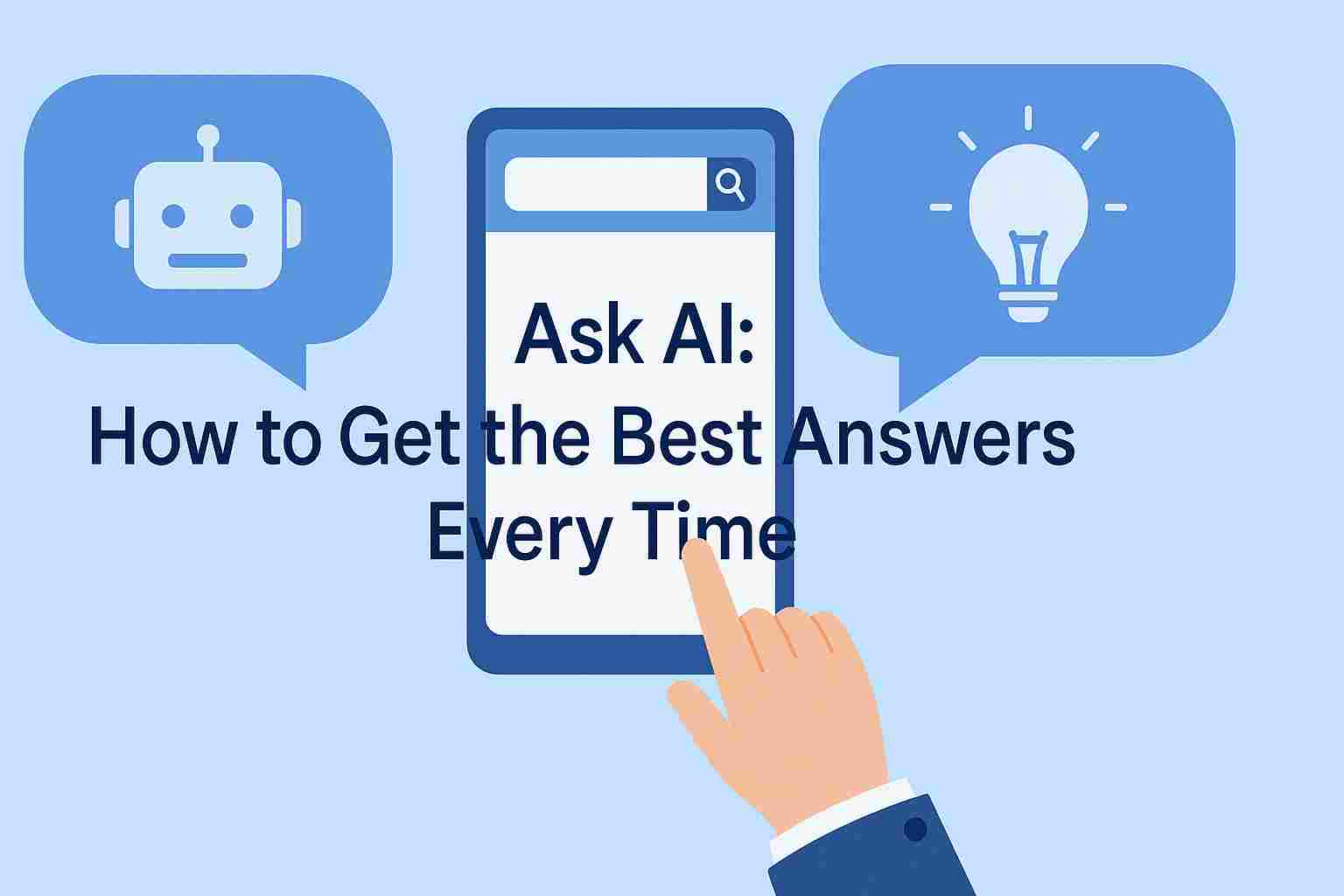Ask AI: How to Get the Best Answers Every Time

Introduction
On one such occasion, one stares unto an empty screen questioning oneself: “What is one to exactly ask this AI?” The thought does swim through many a head. Whether ChatGPT, Claude, or Gemini, too many times, the quality of the input question determines the correctness of the output received by AI. So if the result you desire is useful, elaborated, or even creative, then knowing how to question an AI becomes vital.
Meaningful Questioning Versus Stupid Questioning
To pose a question to an AI means in a way giving a command. The hitch here, however, is that not every question is an effective one. The question “Tell me about marketing” will generate a generalized answer. The more specific question, on the other hand, “What are five low-cost marketing ideas for a local bakery?” instructs the AI as to what precisely it should answer. It is about specificity, context, and purpose.
Why Do Question Qualities Matter with AI Tools?
Because AI interprets your question and predicts the most probable next word, you would want a crisp question that will help the machine assess what it truly is that you want. Think of it as directions: ‘Take me somewhere nice’ may get you lost; ‘Take me to a coffee shop near the park’ gets you right there.
What Are Some Examples of the Best Types of Questions to Ask AI?
Some good questions come from a few simple categories: How-to questions: “How do I start a YouTube channel for my cooking brand?”
Ideation: “Give me 10 blog post topics about AI in healthcare.”
Comparative questions: “What’s the difference between SEO and paid ads?”
Optimization questions: “How can I improve my email subject lines?”
Creative prompts: “Write a short story about a robot that wants to be human.”
Providing more context will be useful; clarifying your request also helps. More context will get you more useful outputs.
Ways to Make Your AI Questions More Effective for Better Answers
A few quick tips:
Be specific: “Give me a 5-day workout plan for beginners at home” beats “Workout tips.”
State your intent: “Write this in a friendly tone for a blog” guides the AI toward style
Include examples if needed: “Turn this sentence into something a 10-year-old would understand.”
Feedback and follow-up: AI will accept being asked again with more detail or comments for refinement Useful as if having a conversation rather than a single command.
What Are Typical Mistakes When Asking AI Questions?
Some common ones are:
Being very vague and broad
Asking lots of unrelated questions in one prompt
Being unclear or missing a critical piece of info
Expecting a perfect answer without refinement
On the bright side, though, AI never loses its temper. Feel free to ask, rephrase, or build upon the previous answer until you achieve your desired response.
FAQ
Q: Can I ask AI personal or emotional questions?
A: Yes, but it’s not a human. It can simulate support, but will never substitute real help.
Q: Is it okay to ask AI for help with work or school?
A: Definitely, but make sure to use it as a helper and not as a way around learning.
Q: How many times can I rephrase my question?
A: As many times as needed. AI actually works better when you give it multiple chances to improve the output.
Q: Can AI questions be used for fun or creativity too?
A: Yes, from jokes and story ideas to game development, AI is an extremely imaginative platform.
Q: Should I use keywords in my AI questions?
A: Keywords, yes, if you want SEO-friendly or content-specific results to set the tone and focus.
Conclusion
Learning the correct way to ask questions of AI is like learning a new language-assuming that one will never stop getting better with practice. Planning for brainstorming, research, or just fun, better questions pave the way for better answers.
Give it a shot What is one thing you’ve always wanted to ask AI? Input it then see where the exchange goes.






